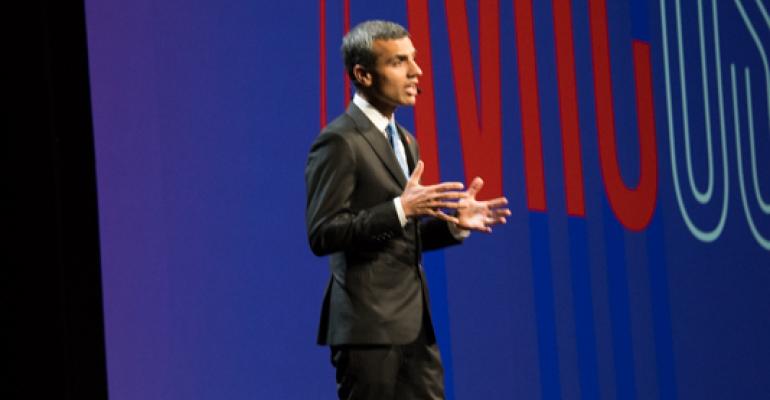Morningstar CEO Kunal Kapoor challenged financial advisors to do more due diligence when looking at the investment options they choose for their clients, pointing out that while asset management fees overall are falling, costs for investors remain “stubbornly high.”
Despite its growth into a firm valued at $5.7 billion, with sales of just over $1 billion annually, Morningstar’s principles remain the same as when it was founded almost 35 years ago, Kapoor said during the opening session of the firm's annual investment conference in Chicago. It is focused on delivering independent research that empowers the end investor, not asset managers—and advisors better be on board with that.
“It is important that you know that when you do business with us, you do business with our values,” Kapoor said.
Among those values, Kapoor said transparancy was key.
For instance, Morningstar Investment Management refuses to pay other firms to list its U.S. mutual fund-based Morningstar Funds on their platforms, a decision that may limit advisor access to their funds. But avoiding the fee arrangements of the pay-for-play deals keeps Morningstar on the side of the investor, he argued. “We choose to follow our values over standard industry practice,” he said.
The company also continues to add to its lineup of research tools and increase the number of funds and products it analyzes, but those additional tools aren't used as a reason to raise fees on users, Kapoor said.
Kapoor also pointed to data privacy as another key value of Morningstar's. He assured attendees that none of the customer data Morningstar collects is being used in any inappopriate way, and any data collected is done with full disclosures. Transparency on fee structures is pivotal to investor success, but the use of customer data is increasingly of utmost importance to consumers, he said.
“We believe that the advisors and investors control that data and they should get to determine" if it is disseminated, he said. "And our disclosures will make that clear.”
Kapoor said that Morningstar is focused on the strengths of long-term investing, andf long-term business growth, and advisors should be too. He warned that advisors should be leery of the newfound interest in their businesses from private equity firms. Private capital has increasingly flowed into the wealth advisory business over the past few years; that's good for some advisory firm owners looking to sell, but Kapoor warned that it might not be good for advisors focused on the long-term well-being of their clients. The financial pressures of private equity ownership mean advisors might not always be making decisions in the clients' best interest.
Private equity firms are there “to make money, and often more money, on a very different timeline than your timeline,” Kapoor said. “We want to win only if you do.”





